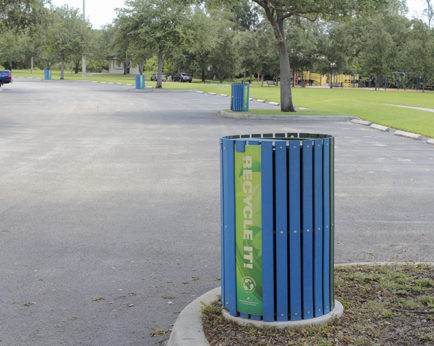
Can psychology influence the way we recycle?
Regents’ Professor Emeritus of Psychology and Marketing Robert Cialdini’s research found social norms have a significant effect on what we toss into the blue bin.

Regents’ Professor Emeritus of Psychology and Marketing Robert Cialdini’s research found social norms have a significant effect on what we toss into the blue bin.

Building a brand for a services business is more complicated than ever. Customers might perceive one hotel chain or insurance company as pretty much the same as its competitors. Customers also are saturated with thousands of messages a day, and they’re relying less on traditional marketing and more on social media and word of mouth to discover and form relationships with a brand. How can services businesses simplify their customers’ experience in such a complex world and still stand out from the crowd?

A recent study ranked Phoenix Number 8 on a list of U.S. cities that closely resemble national demographis averages. Presumably that makes Phoenix a good place for market testing, but in an interview in the Phoenix Business Journal, Associate Professor Douglas Olsen warns that many factors affect the choice of a community to test new products. Phoenix may be a good fit for some, but not all.

Business2Community recommends a new book by Robert Cialdini, Regents’ Professor Emeritus of Psychology and Marketing.

Honeywell Aerospace recently made an internal investment designed to yield competitive advantage and support the company’s growth strategy. It is a one-of-a-kind employee-training program dubbed the Honeywell Academy. Created with some of the top minds in service leadership at the W. P. Carey School’s Center for Service Leadership, the Honeywell Academy is a professional certificate program delivered completely online. And Honeywell Aerospace is sending its entire 1,400- employee customer service organization through the academy.

Even those who love a certain food — such as yogurt or frankfurters — often turn on their favorites and do not purchase the products for periods of time. Assistant Marketing Professor Sungho Park and his research partner studied these purchasing cycles, and they uncovered a valuable fact: timing promotions based on buying cycles makes a huge difference. The researchers write that “a firm can implement targeted promotions with customized timing using easily available descriptive statistics of households’ purchasing histories.”